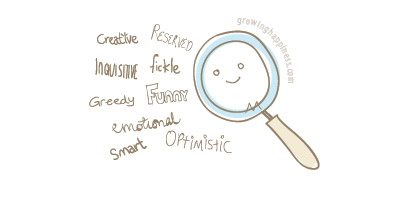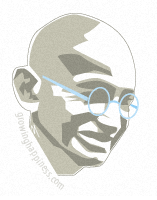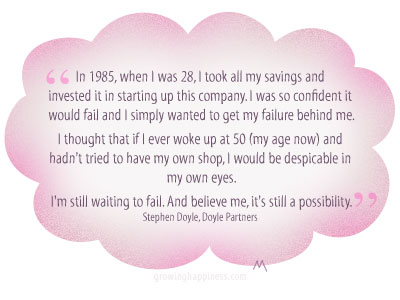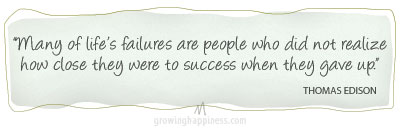Creative Types
Entertaining talk about creativity in the school system by Sir Ken Robinson.
A President for the World
There was an air of quiet celebration in the house on Wednesday. My husband and I had taken a little time off work to watch the results of US Election on CNN.
When Obama’s name was announced as the president elect, I watched America and the whole world throw their fists in the air and celebrate. Some were crying, in relief, joy and hope (and for some, disappointment). I can’t help but shed a few tears myself. I’m just happy to be granted the privilege of witnessing this momentous occasion in history.
![]()
Last week I was chilling out on the couch after a very tiring day when my 11-year old nephew asked, “Why do the skinheads want to assassinate Obama?” referring to a newspaper report last month. In my state of fatigue, I tried explaining about racism and supremacists but find myself at a loss when he asked, “Why is the colour of one’s skin such a big deal?”
![]()
Earlier this year my husband and I were pondering on the probability of America having Barack Obama as president. His proposed policies are generally multilateral, his background is global and he’s got this thing called charisma.
To the world, Obama seemed to be the preferred candidate. Parts of Asia sees him as one of our own (“He speaks Bahasa and has lived in Indonesia! He’s more Asian than your uncle Jo”). Africa, or at least Kenya, claims him as a son of their soil. Middle east welcomes “Hussein” along with the olive branch he’s extending. In a sense, he is a president for the world.
But he is black (or grey as I call it, since he is half white). And we’re afraid that though the world was rooting and ready for him, America didn’t share the same sentiments.
![]()
We were wrong to assume that Americans were not mature enough to look beyond racial lines and for once I’m glad we were. There is so much hope and expectation placed on this one man. And he has shown us, with his election, that there is some hope in this world.
With the current global economic crisis and the peril of climate change, it is definitely a challenging time to be the leader of a nation so powerful and influential. Let’s hope that he lives up to at least some of the expectations. :)
Change the Approach, Not Yourself
A guy on a TV show was talking about the myth of our personalities changing as we grow older (actually, the guy was motivational speaker Marcus Buckingham and the show, Oprah). He also suggested that we should try, in most situations, to magnify our positive traits instead of being obsessed with reducing the negative ones. It’s not all that groundbreaking but I thought I’d share how this approach has helped me in my work.

As a child, I had an insatiable thirst for knowledge and a knack for problem-solving. At the same time, I was reserved and hated confrontations. I always thought I’d mature into a gregarious, eloquent woman. It didn’t quite turn out that way. Attempts to condition myself into becoming more of an extrovert was futile and eventually, I stopped trying.
I work as a designer, which is great because it involves doing a lot of research and finding the right solution to a client’s problem. This part of the job gives me great satisfaction and when I nailed the brief, I feel strong.
My job also requires me to interact with many different individuals and manage conflicts — two things I don’t enjoy but have accepted as part of the job.
It was a shift in mindset I had about 2 years ago that made this part of the job bearable. I started looking at meetings as opportunities to learn and solve problems. The more I open myself to learning at these discussions, the easier it is to find a solution, the less time I need to spend in meetings. A win-win situation for all.
The next time you are faced with a difficult situation that seems to suck all your energy out, stop and think if there’s another way to approach the problem, one that puts your strengths to good use. It’s much easier working with your strength than trying to work against your weakness.
Amazing Vision - Mahatma Gandhi
Here’s my response to the Amazing Visions writing challenge by Damien Riley of Postcards from the Funny Farm.
![]()
My school was divided into houses which was named after inspirational figures in international history and my class came under the Mahatma Gandhi house. That was the first time I heard of the man but it was only after I watched the movie Gandhi, directed by Richard Attenborough and convincingly played by actor Ben Kingsley, that I learned about what he stood for and the profound impact this unassuming man had in the history of India and the world.

Born Mohandas Karamchand Gandhi in British India in 1869, he was given the title Mahatma, meaning Great-Soul, by poet and Nobel Literature Prize winner, Rabindranath Tagore. The turning point in his life occurred in South Africa, where he worked as a legal adviser for 21 years, and in the process witnessed firsthand, the crippling effects of racism. It was there that he coined the term “satyagraha”, his philosophy and practice of non-violent resistance. Returning to India, Gandhi played a major role in establishing India’s independence against British rule. Once again he used his most powerful weapon against the injustice — non-cooperation and peaceful resistance.
Despite the change he effected and being nominated for the Nobel Peace Prize 5 times, “the strongest symbol of non-violence in the 20th century” was never awarded the Nobel Peace Prize. But Gandhi was never one for adulation and awards, being as humble about his influence to the world as he was sure about the power that exists in everyone of us:
“I claim to be no more than an average man with less than average ability. Nor can I claim any special merit for such non-violence or continence as I have been able to reach with laborious research. I have not the shadow of a doubt that any man or woman can achieve what I have, if he or she would make the same effort and cultivate the same hope and faith.”
Mahatma Gandhi
Gandhi dedicated his life to the discovering the ultimate Truth, and did so by conducting experiments on himself and learning from his own mistakes. The result of these experiments with truth and non-violence is a legacy that lives on, decades after his assassination, influencing and inspiring people all over the world from Martin Luther King Jr, leader in the American civil rights movement, to Nelson Mandela, anti-apartheid activist and former president of South Africa.
One of his many admirers, Albert Einstein, who had exchanged letters with him, had this to say:
“Generations to come will scarce believe that such a one, as this (Gandhi), ever in flesh and blood walked upon this earth.”
Albert Einstein
There may come a time when Gandhi’s remarkable story is taken as mere folklore but his ideology will always remain important and timeless.
![]()
Who has been a great inspiration to you? Why not share your thoughts on Amazing Visions? Entries open till end of the month.









